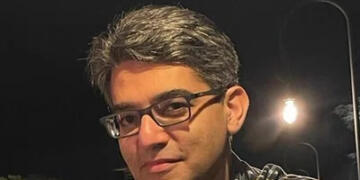Things are certainly not going well for Canadian Prime Minister Justin Trudeau. His recent visit to India and the events surrounding it have raised eyebrows and left many wondering about the state of Canada-India relations.
One of the noticeable aspects of Trudeau’s visit to India was the absence of a welcoming message from Indian Prime Minister Narendra Modi on social media platforms. Unlike other world leaders who usually exchange warm greetings, this omission did not go unnoticed.
While there could be various reasons for this, one significant factor might be India’s concerns about going appeasements of extremists in Canada who aim to harm the country both socially and politically. India has been vigilant about foreign interference in its internal affairs, and it appears that Modi’s silence could be a subtle way of addressing this issue.
The primary agenda of Trudeau’s visit seemed to revolve around “tough talks” on several issues, with a particular focus on concerns related to foreign interference. The Canadian Security Services, led by Jody Thomas, had accused India of meddling in Canadian affairs, citing the case of the targeted shooting and subsequent death of prominent Khalistan activist Harjit Singh Nijjar.
However, recent developments after the G20 summit suggest that it is the Canadian administration that may need to address concerns rather than India. While Trudeau did not openly condemn the Khalistanis, his tone and statements were relatively subdued.
Trudeau stated, “Canada will always defend freedom of expression, freedom of conscience, and freedom of peaceful protest, and it is extremely important to us… At the same time, we are always there to prevent violence and to push back against hatred.”
Also read: G20 Summit: What India actually achieved
The state of India’s relationship with Canada has become a topic of concern. Tensions have escalated in recent months due to the presence of pro-Khalistan separatist groups in Canada. In a significant move just before the G20 Summit, Canada reportedly suggested putting a pause on the ongoing free trade talks with India.
However, based on what transpired at the recent G20 summit, it appears that the Trudeau administration may have no choice but to, at the very least, appear to take action against extremists, even if they don’t fully commit to it. The global stage has a way of influencing international relations, and Canada likely recognizes the need to address the concerns raised by India.
In the complex world of diplomacy and international relations, actions often speak louder than words. While Trudeau’s visit to India may not have resulted in immediate solutions to the ongoing issues, it does signify a willingness to engage in dialogue and address shared concerns.
The absence of a public welcoming message from Prime Minister Modi may serve as a subtle reminder that India is watching closely and expects Canada to take meaningful steps to address its concerns regarding foreign interference and the presence of pro-Khalistan groups.
It remains to be seen how the Canada-India relationship will evolve in the coming months. However, the recent developments indicate that both countries are aware of the need to navigate these challenges diplomatically while safeguarding their respective interests.
While tensions exist, diplomatic channels remain open, and there is an acknowledgment of shared concerns that need to be addressed. The absence of a public welcome message from Prime Minister Modi may signal India’s expectation that Canada will take concrete steps to address these issues in the future.
Support TFI:
Support us to strengthen the ‘Right’ ideology of cultural nationalism by purchasing the best quality garments from TFI-STORE.COM


























